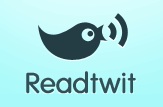A recent post at the great philosophy teaching blog In Socrates’ Wake had a reader asking the audience whether, by not automatically giving a student an F for the course after plagiarizing a one-page assignment, he had “gone soft”. Simultaneously, I empathize with the instructor and I am baffled by why I empathize.
In the past I have taken hard stances against plagiarizers, stances which at the time made a lot of sense to me. Like the author and commenters at the ISW post, it seemed to me that plagiarism is the worst kind of crime and deserves the worst kind of punishment. In retrospect, this attitude seems ludicrous. There is a broad spectrum of actions one could reasonably take in reaction to a cheater, ranging from expulsion to doing absolutely nothing. Why is the transition from “hard” to “soft” to be found between failing the course and not failing the course, a consequence that seems to be pretty far toward the severe end of the spectrum?
To shed light on that question, it might help to think about this one: Why should students be punished for plagiarism at all?
Before thinking carefully about this question, it’s really crucial to remember that there are different kinds of plagiarism, and treating them all alike is like claiming that a candy-bar thief should be punished like Bernie Madoff. I want to know whether there is any justification for plagiarism being punished so harshly, so it makes sense to consider the most serious kind of violation. I take it that this would be a student who copies (buys, whatever) an entire paper and passes it off as his own. If any kind of plagiarism is going to warrant harsh treatment, presumably this will be it. Unless otherwise mentioned, then, this is the kind of plagiarism I’m talking about.
That said, let’s consider a few arguments one might give for why plagiarism is a punishable offense.
- Plagiarism is cheating, and cheating is unfair to the other players. I take ‘cheating’ to mean ‘breaking the rules’, which is unfair because everyone else has to abide by the rules. But different kinds of cheating are immoral in different ways. Cheating in golf, for instance, is wrong at least partly because my actions have immediate negative ramifications for the other players of the game: I take a stroke off of my game, and you are that much more likely to lose. In golf, what’s good for one person is necessarily bad for the other players (assuming they’re opponents – in fact, this might be a functional definition of what it means to be opponents). The same is not true of plagiarism. Unless you grade on a curve (a practice that a philosopher who is concerned with “fairness” would be hard-pressed to defend, by the way), one student’s cheating his way to an A when he otherwise would have gotten a D does not have a negative effect on other students in the class. You might maintain that students are obligated not do things that their classmates are forbidden to do out of abstract principle, a position that I can imagine various sorts of arguments for. But if the only thing wrong with plagiarism were that it was a violation of an abstract moral principle, it would take a very warped theory of retributive justice to justify such draconian punishment.
- Stealing is unfair to the person stolen from. Like in the previous case, “fairness” could be judged along two metrics: the practical and the theoretical. Stealing is often bad in a practical sense. If you steal my Charleston Chew, I no longer get to enjoy it myself. Therefore, :'( . Intellectual “theft” works differently, since the person stolen from hasn’t lost the use of the ideas. Of course, intellectual theft sometimes amounts to material theft, as when a breach of patent costs an inventor lots of money. And a parallel consideration might be at work when we talk about plagiarism in the academic community at large. If Dr X writes a great draft, and Dr Y steals it and publishes it, it could mean that Dr Y beats Dr X out for that Ivy League faculty position. Generally speaking, though, this is not a relevant consideration for student papers. Students – especially undergraduates – are neither publishing their term papers (much less their one-page, low-stakes assignments) nor using their papers to compete with others for jobs. The only situation where I can imagine real harm to the victim of classroom plagiarism is where the victim writes a paper with a great, novel idea or argument, the professor reads two or three plagiarized versions of the same argument before getting to the original, and as a result the professor is less impressed with the argument and gives a lower grade to the originator of the idea.
- Plagiarism devalues a degree, which is unfair to classmates. A bit different from the first consideration above, which is concerned more with a single game. This argument has more to do with iteration. If you cheat once and get away with it, other people will realize that cheating is possible; thus more people will cheat; and thus, somehow, everyone’s degree will be worth less; decreasing the value of a non-cheater’s degree through your own cheating is morally wrong; therefore cheating is wrong. (Andy Cullison lays out this argument here.) There are a couple things to notice about this argument. First, the mechanism by which the actual devaluing of the degree come about are not specified, and presumably they’d have to be abstracted away from in order to count out obvious counterexamples where the student could cheat, get away with it, and never let anyone else know about the cheating. Second, this justification for the punishment of plagiarism is less a moral indictment of cheating than of harming other people’s degrees. In the end, this might amount to the same thing, but it does not justify the kind of snooty self-righteousness that tints some instructors’ lectures on plagiarism, which suggests that plagiarism is akin to a mortal sin. As for punishment, you might argue in this case (as Mill does in his wonky “sensitive feeling on the subject of veracity” argument near the end of Chapter 2 in Utilitarianism) that a harsh punishment fits this crime even though the actual consequences of this particular action are relatively small (or non-existent) because the action has the potential to contribute to the weakening of a larger feeling of trust that is so manifestly important. It strikes me that this is the best reason considered so far for punishing plagiarists.
- Plagiarism is bad for scholarship/academia/the university. I’ve heard this sort of argument before: if everyone plagiarizes from everyone else, how will any new things be discovered? In one sense this rhetorical question is clearly overblown. Taken more seriously, you might grant that the posting of falsified or plagiarized material in, say, a journal of medicine could end up distracting scientists for several years, thereby diverting valuable research resources. But this argument does not extent to students, who are generally not doing original research, are not publishing, and are not in a position to affect the discipline either positively or negatively.
- Plagiarism is so frowned upon in graduate school and the professional world that students must be trained as undergraduates not to plagiarize. In other words, you might grant many of the points I’ve made above, which suggest that plagiarism at the undergraduate level is really not worth punishing in itself, but still think that punishment is prudent so that students are trained not to plagiarize when it really counts. I think there are a couple of limitations on this justification, though. First, it’s not obvious that plagiarism really is all that frowned upon in most of the careers that our students are going to end up in. If I crib the opening paragraph of an earnings statement I’m preparing, who cares as long as it gets the job done? I suspect that relatively few of our students end up in careers – academics, journalism, writing – where plagiarism really is so disdained. Second, I am highly dubious that scaring students shitless is a good way to train them not to plagiarize. If you want to train a dog not to jump on a couch, you use a rolled-up newspaper instead of reason; the same should not be true of students. Even if punishment – in the form of failed assignments, failed courses, or grade deductions – is part of the instructor’s arsenal, it should be proportionate with other, more humane teaching methods.
I take away from these considerations that there are both moral and prudential reasons that justify the punishment of plagiarism. But the assumption that harsher is better that I so often see in instructors appears to me to be far off of the mark. Few would say that you should teach philosophy, or chemistry, or poliical science, or mathematics, by threatening and slapping students. Why teach intellectual honesty that way?


